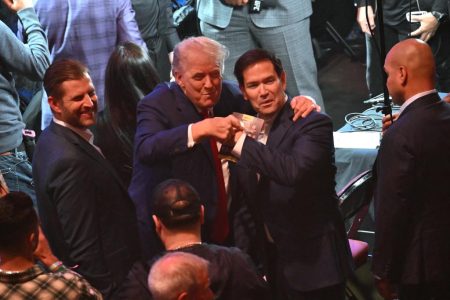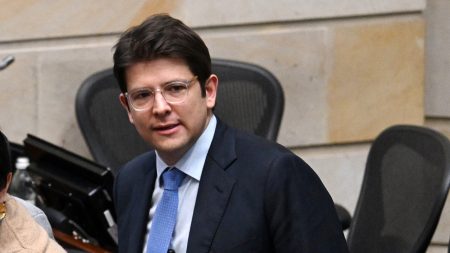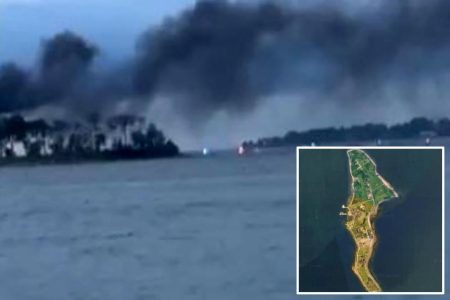President Donald Trump’s recent assertion that the U.S. Military intervened in California’s water supply amid wildfires sparked immediate controversy and refutation from state authorities. Trump, via his Truth Social platform, claimed the military, utilizing emergency powers, “TURNED ON THE WATER” from the Pacific Northwest to combat the fires raging near Los Angeles. He framed this alleged action as a decisive move against what he termed “Fake Environmental arguments” prioritizing environmental concerns over the needs of the people. However, the California Department of Water Resources categorically denied any military involvement, clarifying that the federal government merely restarted federal water pumps following routine maintenance. They further emphasized the adequacy of Southern California’s water reserves.
The contrasting narratives highlight a recurring theme of Trump’s rhetoric, pitting environmental regulations against human needs. His declaration of military intervention resonates with his broader political stance, often portraying himself as a decisive leader taking action against perceived bureaucratic obstacles. The refuted claim, however, undermines the intended portrayal of strength and decisiveness, raising questions about the accuracy of his statements and potentially exacerbating existing tensions surrounding water management and environmental policies in California. The incident also underscores the continuing influence of Trump’s pronouncements, even outside of traditional media channels, and his ability to generate rapid responses and fact-checking efforts from established institutions.
The wildfires near Los Angeles, while nearing containment at the time of Trump’s statement, provided the backdrop for his pronouncements. While Trump linked the fires to water scarcity, implying that environmental regulations hampered firefighting efforts, this was directly contradicted by the Association of California Water Agencies. They affirmed that water availability was not an impediment to firefighting and highlighted the healthy state of California’s reservoirs, attributed to effective water management practices. This discrepancy further underscores the divergent perspectives on the issue and the potential for misrepresentation of complex situations for political gain.
Trump’s prior actions, specifically an executive order signed just days before the disputed military intervention claim, provide further context for understanding his stance. The order directed federal agencies to prioritize water delivery to California, potentially overriding state regulations. It cited alleged instances of firefighters hampered by dry hydrants and insufficient water infrastructure during the recent fires, a claim refuted by Californian water authorities. The executive order also directed a reversion to Trump-era water management policies, which had previously faced legal challenges from California and environmental groups for their potential impact on endangered species.
The reversion to previous policies, specifically concerning the State Water Project and the Central Valley Project, reignites a long-standing debate over water allocation in California. Trump’s policies, favoring increased water delivery for agricultural and urban use, have been criticized for potentially harming endangered species like the delta smelt. Trump’s public dismissal of the delta smelt as a “little tiny fish” exemplifies his dismissive attitude towards environmental concerns that he perceives as obstructing human needs. This stance aligns with his broader political narrative and resonates with specific constituencies, particularly those in agriculture and related industries who often view environmental regulations as an impediment to economic activity.
The incident involving the refuted military intervention claim, when viewed in conjunction with the executive order and Trump’s past pronouncements on California water management, reveals a consistent pattern. Trump consistently frames environmental regulations as an obstacle to human progress and portrays himself as a decisive leader willing to circumvent perceived bureaucratic roadblocks. However, the factual inaccuracies in his claims, as highlighted by state authorities and expert organizations, raise questions about the credibility of his narrative. The incident also showcases the ongoing tension between environmental protection and resource allocation, a complex issue with significant implications for California’s future. The differing perspectives and the potential for misinformation underscore the importance of fact-checking and critical analysis in navigating complex policy debates.










